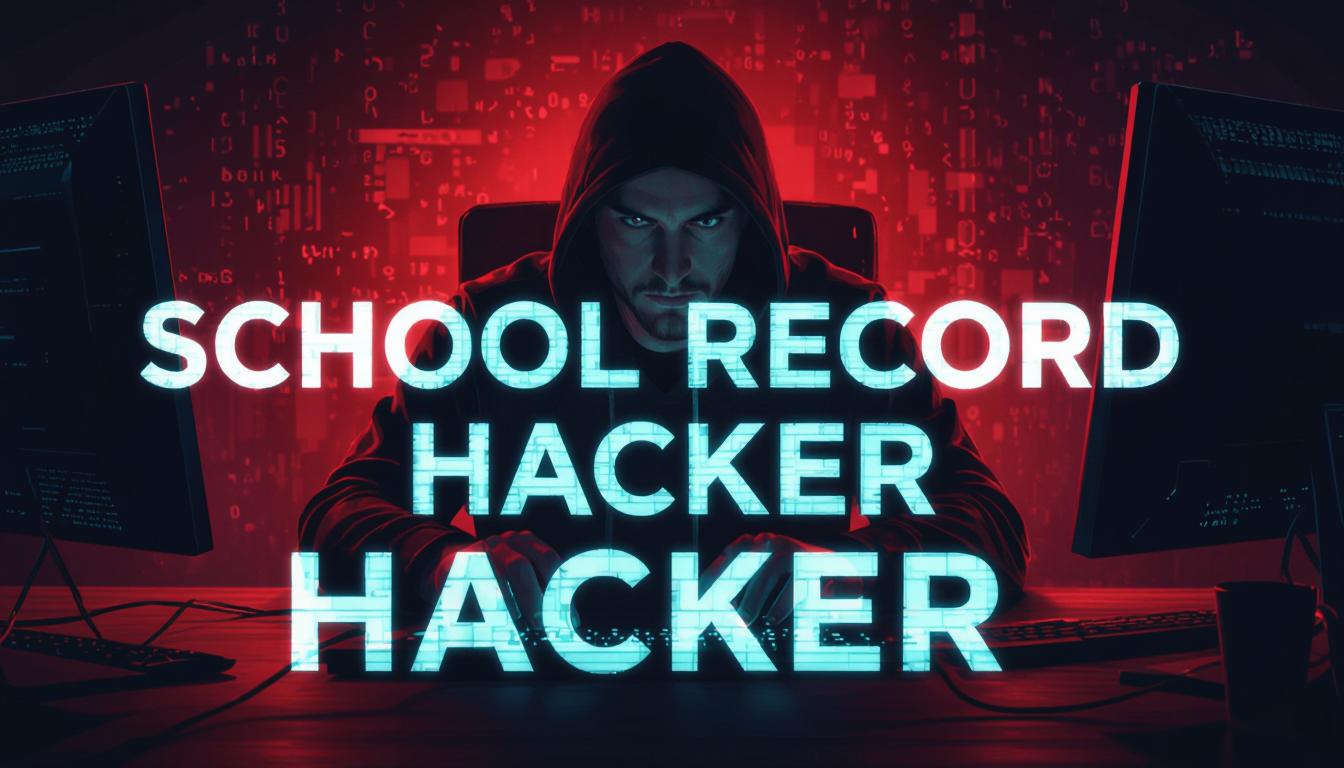School Record Hackers: What Are They and Are They Legal?
Table of Contents
- Introduction: The Term That Raises Eyebrows
- What a School Record Hacker Actually Does
- Myths and Misconceptions
- The Methods — And Why They’re Rarely Flawless
- Spotting Fakes in the “Best Hackers for Academic Record Changes” Market
- Legal and Ethical Minefields
- Risks Beyond the Obvious
- Can a Hacker Alter School Grades Legally?
- Trusted Services for School Database Hacking — Fact or Fiction?
- Safer Alternatives That Still Work
- Conclusion: The Hard Reality
- Frequently Asked Questions
1. Introduction: The Term That Raises Eyebrows

School record hacker — the phrase alone makes people lean in, curious. Maybe it’s the lure of a forbidden shortcut, maybe it’s desperation. Students fall behind, parents panic, and suddenly the idea of hiring someone to “fix” the record doesn’t seem so far-fetched.
In online corners you’ll find offers to hire a hacker to change school records, often framed as fast, discreet, and “undetectable.” The marketing makes it sound almost routine. But having followed dozens of cases, both in court documents and in the shadows of online forums, I can tell you — most of these stories end badly.
Critical Warning
Sometimes the “service” is pure fraud. Sometimes the job is botched. And sometimes it works… until a routine audit or backup comparison exposes it months later.
2. What a School Record Hacker Actually Does
At its core, this is someone who claims to infiltrate school systems — whether local servers, cloud-based student information systems, or even offline databases digitised for administration.
Some pitch themselves as the best hackers for academic record changes, flaunting screenshots of altered transcripts or “client reviews” (often unverifiable). In reality, many are just middlemen outsourcing to unknown third parties.
A true operator might exploit a vulnerable database, phish staff credentials, or use an insider. But genuine technical ability is rarer than the marketing suggests.
3. Myths and Misconceptions
Myth 1: Schools use outdated, easily hackable systems.
Truth: Many districts have upgraded to enterprise-level security with intrusion detection and multi-factor authentication.
Myth 2: You can change records without leaving a trace.
Truth: Even skilled intrusions often leave digital fingerprints — log entries, mismatched backups, anomalous timestamps.
Important Reality Check
Myth 3: There’s a “safe” way to do it.
Truth: If you’re altering academic records without permission, you’re breaking the law in most jurisdictions.
4. The Methods — And Why They’re Rarely Flawless
When a job does succeed, it’s often through:
- Credential theft — tricking staff into giving login details.
- Software exploits — targeting unpatched flaws in Student Information Systems.
- Insider cooperation — paying someone with legitimate access.
But even then, removing all traces is tricky. Schools store historical data redundantly; discrepancies are often found during audits.
Some claim they can alter school grades legally, usually by framing it as a “testing service” or “data correction.” This is marketing spin — legality doesn’t hinge on intent alone, but on authorisation, which is almost never granted.
5. Spotting Fakes in the “Best Hackers for Academic Record Changes” Market
In reality, the market is dominated by fraud. Common red flags:
- No verifiable track record.
- Upfront payment in cryptocurrency only.
- Generic promises without methodology.
Every so often, you’ll encounter an operator with documented work. One example is this school record hacker known in certain underground circles — but even then, you’re shouldering legal and reputational risk.
6. Legal and Ethical Minefields
Altering school records without permission is academic fraud and, in many countries, computer crime. Consequences can include:
- Expulsion or termination.
- Criminal charges with fines or prison.
- Permanent damage to reputation.
The U.S. Department of Education and similar bodies worldwide treat unauthorised access to educational systems as a serious offence.
7. Risks Beyond the Obvious
Hidden Dangers
Beyond the obvious legal repercussions, there are hidden dangers:
- Data theft — your personal details could be sold.
- Extortion — hackers might demand more money later.
- Long-term leverage — once someone has proof of your involvement, you’re vulnerable.
8. Can a Hacker Alter School Grades Legally?
Short answer: almost never. “Legal” grade changes happen through authorised channels — appeals, administrative corrections, or documented errors.
The notion that you can a hacker alter school grades legally is a dangerous misreading. Unless they are officially contracted by the school (which is rare), it’s a violation of laws on data integrity and unauthorised access.
9. Trusted Services for School Database Hacking — Fact or Fiction?
You’ll see claims of trusted services for school database hacking with glowing reviews. Many are fabricated. In the underground economy, reputation can be manufactured with fake testimonials, doctored screenshots, and sock-puppet accounts.
The Harsh Truth
Even “trusted” actors can turn on a client when the stakes are high.
10. Safer Alternatives That Still Work
If the goal is to fix an error or improve grades, consider:
- Filing a formal academic appeal.
- Requesting a review for clerical errors.
- Retaking classes or negotiating for makeup work.
These lack the instant gratification but don’t end with a criminal record.
11. Conclusion: The Hard Reality
In years of covering cybercrime, I’ve learned that shortcuts in education almost always carry hidden costs. Even when the immediate job “works,” the long-term risk rarely justifies the gain.
The Smart Play
Build the record the hard way — so it can stand up to any audit, any time.
Frequently Asked Questions
You can’t — there’s no completely safe method.
A handful have skills, but scams dominate the market.
Not without official authorisation, which is rarely granted.
Claims exist, but proof is elusive and often fabricated.
